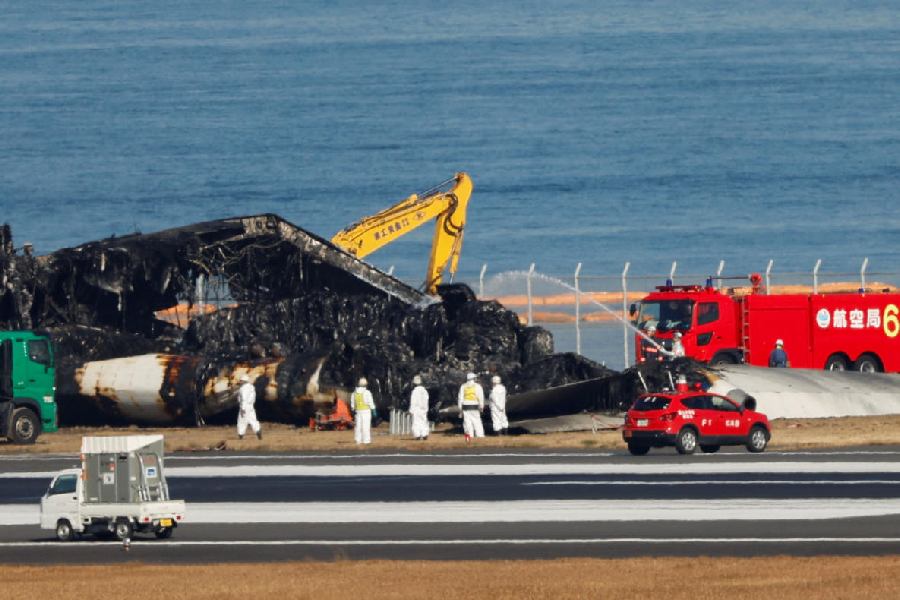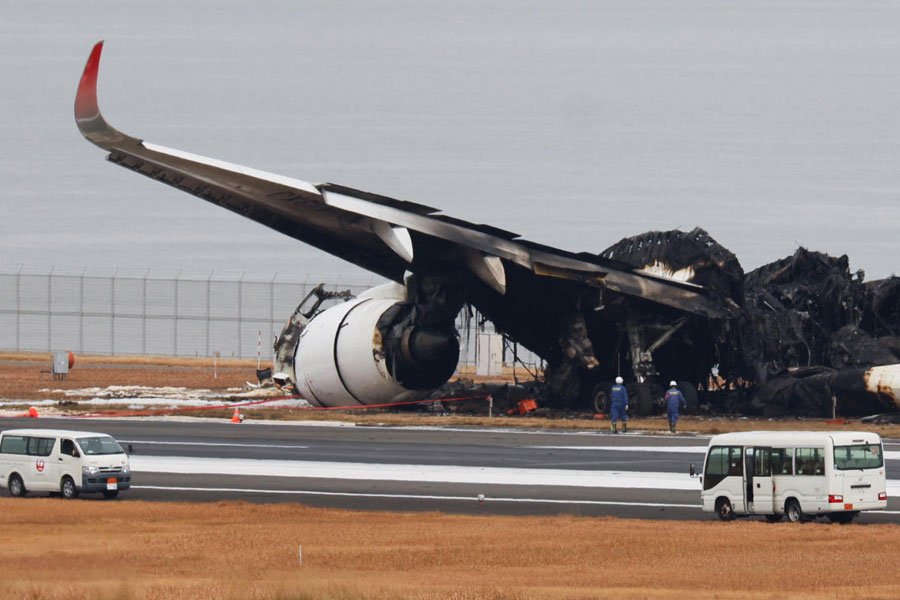Crews at Tokyo's Haneda Airport began clearing the charred wreckage of a Japan Airlines (JAL) plane from a runway on Friday, as investigators sought further clues to what caused the deadly accident.
The JAL Airbus A350 collided with a Japanese Coast Guard turboprop on the runway while landing in Tokyo on Tuesday. All 379 people on the JAL aircraft escaped before it was engulfed in flames, but five of the six crew on the Coast Guard craft died.
Three excavators equipped with cutting equipment began ripping pieces off the aircraft, with one lifting parts into a large lorry as around a dozen personnel in white overalls and hard hats watched on.
An official from the Japan Transport Safety Board (JTSB) said the cockpit voice recorder of the JAL plane has not yet been recovered. The craft's flight data recorder was retrieved on Wednesday, the official said.
Officials aim to complete the removal of the wreckage by Jan. 7 and it will be taken to its hangar, where the aircraft will be inspected by Tokyo Metropolitan Police Department, the TBS report said.
Transport authorities are probing the circumstances that led to the Coast Guard plane entering the runway where the passenger jet was landing.
The Coast Guard plane was making its third emergency trip to an earthquake zone within 24 hours when it collided with passenger jet at a very busy airport, a Coast Guard official told Reuters.
Authorities have only just begun their investigations and aviation experts say it usually takes the failure of multiple safety guardrails for an airplane accident to happen.
U.S. aviation safety officials will provide assistance to Japan in the reading of airplane recorders the deadly collision, according to the head of the main U.S. transport regulator.
The runway collision marked the first time a modern lightweight airliner has burnt down and is being seen as a test case for how well a new generation of carbon-composite airplanes copes with a catastrophic fire.












